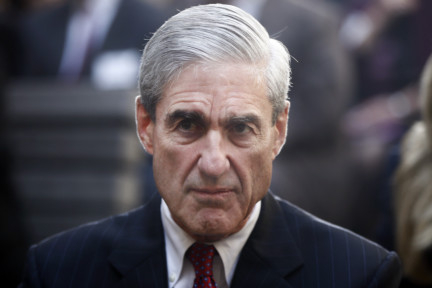
There has been a lot of debate recently about the criminalisation of politics. Among those concerned about the issue, a prominent voice belongs to Harvard law professor emeritus Alan Dershowitz. On television, on Twitter and most recently in an op-ed in the New York Times, Dershowitz has decried what he sees as a growing trend of criminal prosecutions being deployed to settle political scores. The most prominent example, he argues, is special counsel Robert Mueller’s investigation into the Trump campaign. Unfortunately for Dershowitz, his argument is divorced from the facts.
While acknowledging that true public corruption should be prosecuted, Dershowitz says that malleable criminal statutes are too frequently being “stretched” to cover political conduct that is not truly criminal. He argues that both political parties are guilty of prosecuting the “ethically questionable, but not necessarily criminal, activities of political rivals.”
Dershowitz’s starting premise is incontrovertible: Criminal prosecution should never be used for political purposes. This cornerstone of the rule of law is the reason behind the historical norm of separation between the White House and the Justice Department when it comes to criminal matters — although the current occupant of the White House, with his frequent calls for the Justice Department to investigate his political rivals, seems to have little regard for this important principle.
It’s also true that statutes prohibiting crimes such as conspiracy, obstruction of justice and corruption are notoriously broad. This is a characteristic of white-collar crime in general, not just political corruption cases. Fraud and corruption are squishier concepts than, say, robbery or assault. As a result, white-collar statutes leave more room for prosecutorial discretion. We must always be on guard to ensure that those statutes are not abused by overzealous prosecutors.
But it’s also a fact of life that there are political overtones in any public corruption prosecution. I’ve yet to see a high-profile defendant in a corruption case who did not assert some variation of “this is a political witch hunt by my enemies.” The politician’s claim that he or she is being prosecuted for political differences rather than actual criminal misconduct is Criminal Defence 101 in a public corruption case. It cannot simply be accepted at face value.
When it comes to particular cases, Dershowitz’s arguments break down. He cites the prosecutions of Senators Ted Stevens and Robert Menendez as examples of this supposed criminalisation of politics. But Stevens, a Republican from Alaska, was prosecuted by president George W. Bush’s Justice Department, and Menendez, a Democrat from New Jersey, was indicted when Barack Obama was president. It’s hard to see how these cases demonstrate the use of criminal law to attack “political enemies.”
Dershowitz also criticises congressional probes into Russian meddling in the US presidential election and Hillary Clinton’s emails. But these are not criminal proceedings and do not raise the same concerns. For better or worse, such hearings are always political, but at least they are taking place in a political arena.
Dershowitz’s main target is the Mueller investigation, which he accuses of investigating President Donald Trump for what should be protected exercises of his constitutional powers. But once again, the facts contradict his claim. Mueller was appointed by Trump’s own Justice Department. This is not an example of criminal law being used against one’s political rivals.
Mueller is a Republican and career law enforcement officer who is widely respected on both sides of the aisle. No one, other than a few extreme partisans, believes that Mueller is acting out of political motives. With last Friday’s announcement about Michael Flynn, Mueller’s team of professional prosecutors has already secured at least two guilty pleas and the indictment of two other individuals, with more shoes expected to drop. Although Mueller’s results may be cheered or decried by partisans on both sides, all indications are that the investigation is being carried out in a professional and nonpartisan fashion.
Dershowitz does not have access to the FBI files that led that agency to conclude a criminal investigation was warranted. He does not have access to the confidential grand jury materials and testimony being assembled by Mueller and his team. Yet he feels confident proclaiming that there is no basis for a prosecution and that Mueller’s investigation represents the criminalisation of politics. We don’t know where Mueller’s investigation will ultimately lead. But given his lack of access to investigative information, it’s hard to see Dershowitz’s claim as anything more than a version of the reflexive tactic defence attorneys use in every public corruption case.
It’s true that politics must never be criminalised, but it’s equally true that politicians do occasionally commit crimes. Dershowitz may prefer to assume that any criminal investigation of a politician is politically motivated and inappropriate. When it comes to the Mueller investigation, however, the facts suggest just the opposite.
— Washington Post
Randall D. Eliason teaches white-collar criminal law at George Washington University Law School. He blogs at Sidebarsblog.com.












